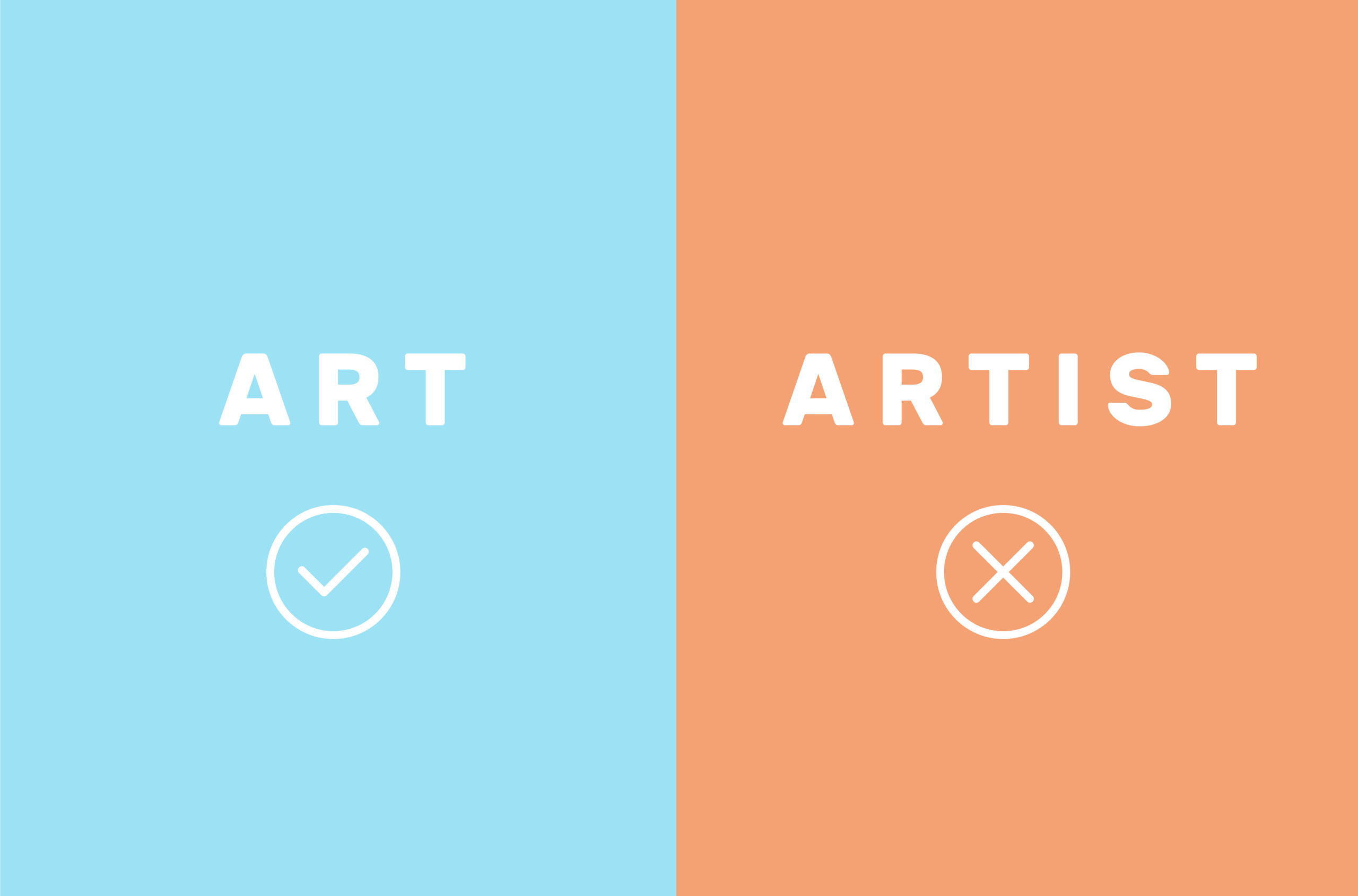[Written by Annie Wakefield]
[Image by Kate Zápražná]
When an artist makes controversial statements or life choices that you neither support or condone, is it possible to find a separation between an artist and their art, or are they of one thing?
For many people, there is a dilemma in still appreciating an artist’s work, be it watching a film starring said actor, or listening to an artist’s music, after they’ve come under fire – whether it be for making provocative political statements or for unacceptable behaviour in their personal life.
We were faced with this dilemma in June when Kanye West released his new album ‘Ye’. Most of the talk at the time was not about the album, but over whether we should be listening to it at all in light of the controversial and frankly confusing behaviour of West in the build up to its release. In the weeks before the album dropped, Kanye had openly showed support for Donald Trump, which, despite being entitled to his own political beliefs, is a contentious issue in America and the world at large at the moment. Kanye caused further offence by making the illogical claim that slavery was a choice. As an African-American artist, this undoubtedly alienated many of his fans who had previously viewed him as somebody to relate to and an artist to stand up against racism and bigotry, not one who is part of the problem. Those actions made it problematic in the eyes of some fans to listen to his music for fear of supporting him and encouraging his baffling behaviour.
This is not the only time consumers have thought about boycotting an artist’s work over their behaviour. Back in 2009 when Chris Brown’s domestic violence against then girlfriend Rihanna came to light, many people stopped listening to his music as it would essentially support Brown. Especially young women who sympathised and related to his victim were too uncomfortable to continue listening to his music.
The issue with trying to find a separation between an artist and their art, as these cases prove, is that once an artist is in the limelight, not just their art but their actions and opinions become public matters too. They essentially become a reflection of their work, and this is something that artists need to recognise. Their actions are on display to the world and bear significant power for influencing those who consume their art. So if an artist is promoting unacceptable behaviour and spreading divisive messages, it can be genuinely difficult for their followers to find a place in between where they can still enjoy an artist’s work irrespective of any controversy surrounding the artist themselves. The fact that streaming music or buying tickets to a show contributes financially to an artist’s success, means you are still supporting them, not only symbolically but physically too.
That said, there are many artists who have been causing controversy for years and are still finding success in the industry. Maybe this proves that audiences can find a distinction between an artist and their art.
Morrissey is an artist who is well known for his strong opinions, whether it’s his belief in animal rights and his powerful methods of promoting them, or his opinions on monarchy. However, it’s clear that most people can find some separation between him and his music, or everybody who listens to him would be vegan and staunchly against monarchy. And though many of his fans do agree with his views, many still choose to ignore the message of ‘Meat is Murder’ or his political preaching at his shows. It’s only when he begins to make uncomfortably controversial claims in support of Brexit and tightening immigration, that people have considered the idea that this time he’s gone too far, and maybe we shouldn’t separate him from his music. Especially since more recently he showed support for Kevin Spacey in light of the sexual allegations against him.
In other areas of life, we don’t tend to separate a person from the bad things they do or separate a company from their unethical conduct in business. So why should it be any different for artists, who can use their art forms to promote their thoughts and actions, and potentially encourage others to follow their ways?
An important distinction to be made though, is that expressing political opinion is wholly different to an artist being found out for domestic or sexual violence, or any other crime. Music, film and art in general are political by nature and so unless there is serious offence caused or violence involved, we shouldn’t expect artists not to be political. Perhaps it’s possible to find a distinction between an artist and their opinions, but maybe not between an artist and their crimes.


[…] Originally published by Glasgow University Magazine, here: https://www.glasgowuniversitymagazine.co.uk/between-art-and-artist/ […]